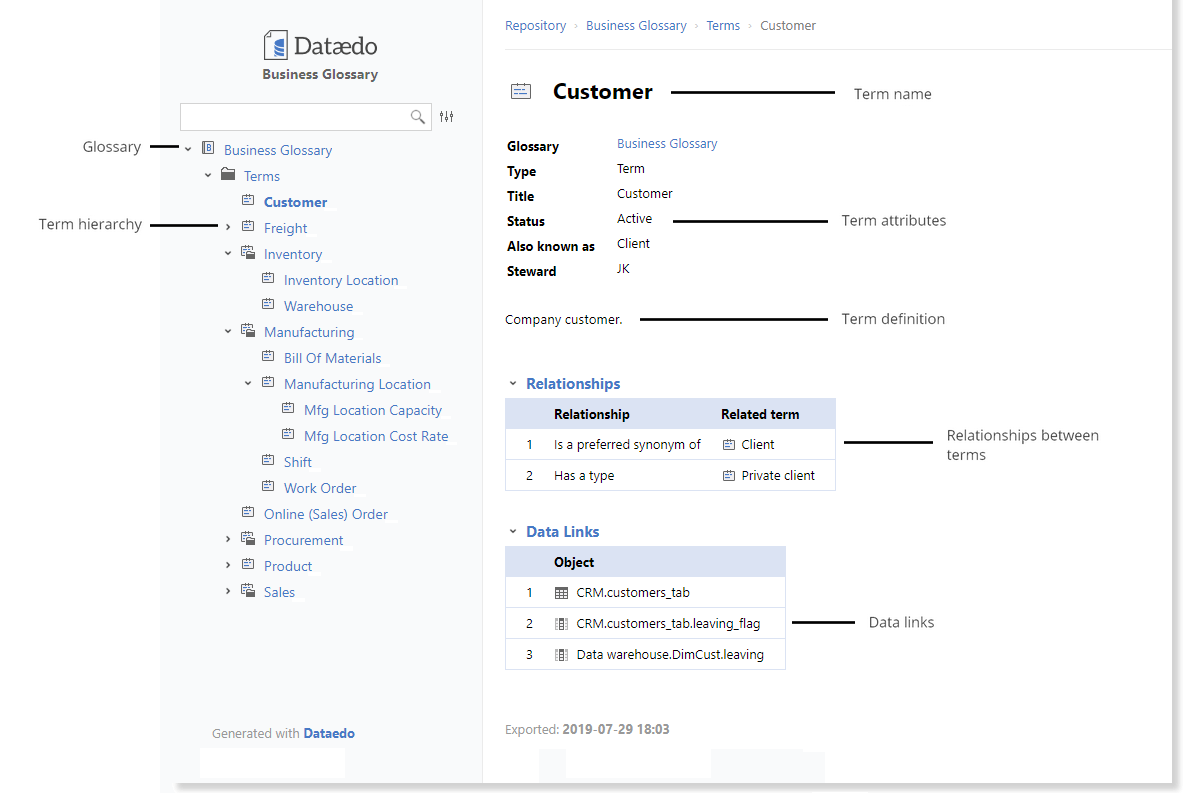A couple of weeks ago I had an honor to host a webinar with George Firican, a data governance & BI director at the University of British Columbia, Vancouver, Canada, public speaker and founder of Lights on Data - educational blog and consulting services on data management and BI.
The webinar was titled Business Glossaries - The What, the Why, and the How and it is a good introduction into the concept of business glossaries - what they are, why each organization needs to have one, and what are the steps to implement it.
You can watch the recording from this webinar in a video attached below and read a top level summary in article below or in George's PowerPoint presentation for this webinar.
Watch webinar recording:
Watch the presentation:
So what are those business glossaries people are talking about?
Business Glossary - The What
Business Glossary definition
A collection of business terms with their unique definitions and other useful related information
Similar terms
Here are the terms you might have encountered, that are somewhat similar to the business glossary.
- Business Dictionary
- Business Vocabulary
- Data Catalog
- Data Dictionary
- Business Lexicon
- Business Data Dictionary
- Business Semantics
- Business Metadata
- Metadata Repository
- Business Catalog
- Business Compendium
Business Glossary vs Business Dictionary
- In Business Glossary the terms are unique and term has only one definition
- In Business Dictionary the same term (e.g. Customer) can have multiple definitions
Business Glossary - The Why
If you want the detailed explanation of the benefits of the business glossary, please read George's article titled "What is the Business Value of a Business Glossary?".
Short list is the following - Business Glossary:
- Facilitates understanding
- Improves communication across organization
- Enhances training
- Established ownership of the terms
- Increases trust in data
- Improves productivity of analytics and decision making
Business Glossary - The How
OK, so now that you know why you should get a Business Glossary right away, here is a plan to follow to implement a glossary.
1. Get buy-in
- Make a business case - focus on benefits or key pain points
- Get a sponsor - make sure he's high up in a hierarchy
- Get a budget - ideally as a part of existing project
2. Adopt best practices
- Attributes of business glossary - term name & definition, other attributes
- Establish and follow naming and definition guidelines
- Define process / workflow
3. Choose and gather content
Choose scope of glossary (topic & terms) and gather existing information.
4. Get a tool
- Build in-house or
- get a specialized tool (e.g. Collibra, Dataedo)

Summary
I hope the webinar got you enough information to give you fuel to start implementation a business glossary in your organization.
If you want more content, here's more for you:
If you'd like to create your own business terms, organize them into a hierarchy, map to data assets and share with your team then:











 Piotr Kononow
Piotr Kononow



